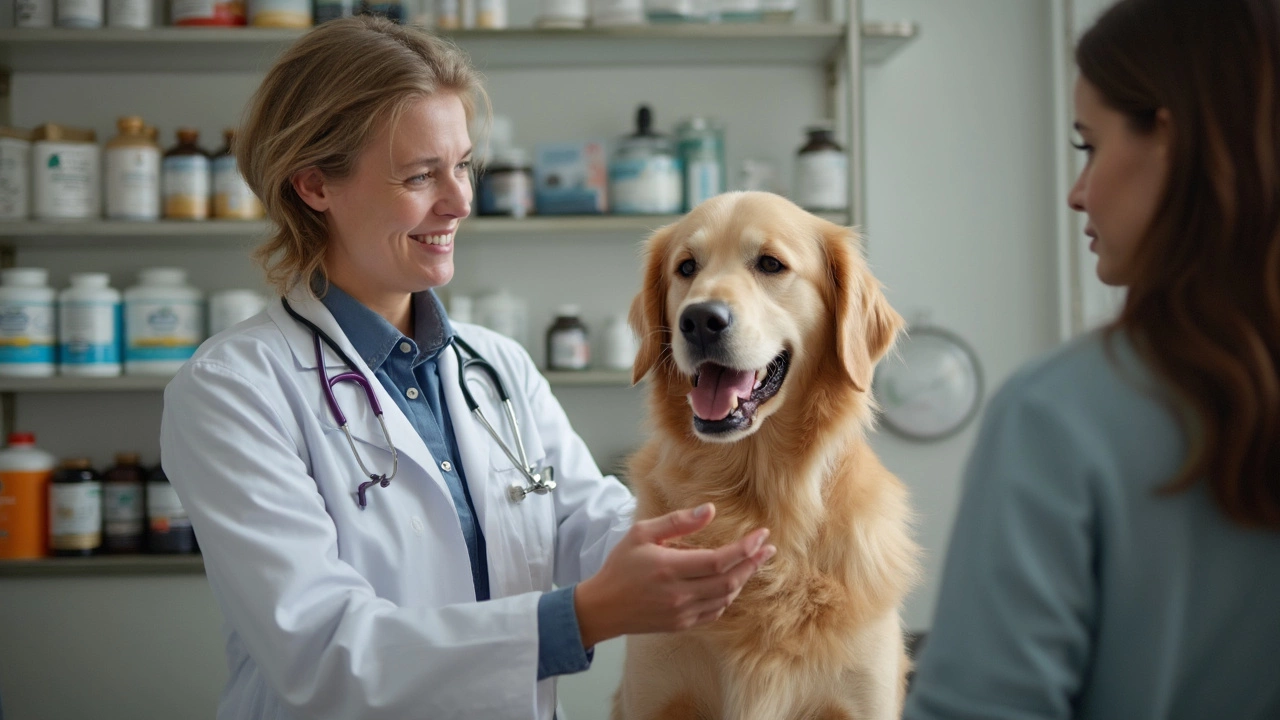Vet Advice: Practical Tips from the Experts
Got a question about your pet’s health? You’re not alone. Whether you’re puzzling over the best time to feed your dog, wondering if your cat should eat dry food all day, or trying to figure out how to keep your pup calm on a plane, we’ve gathered the most useful vet‑backed answers in one place. The goal is simple: give you clear, actionable advice so you can make the right moves without endless Googling.
Feeding & Nutrition Basics
Most pet owners stress about when and how much to feed their furry friends. The rule of thumb for dogs is two meals a day for adults – one in the morning and one in the evening – and they should finish eating at least three hours before bedtime. This helps digestion and keeps nighttime accidents down. Puppies need three to four meals spread out, plus a consistent potty schedule.
For cats, the answer depends on their lifestyle. A healthy adult usually does well with two meals a day, but many owners prefer free‑feeding dry kibble. If you choose to leave dry food out, make sure it’s high quality and monitor your cat’s weight. Over‑eating can lead to obesity, which vets link to joint problems and diabetes.
When it comes to ingredients, steer clear of fillers like corn and wheat gluten in both dog and cat foods. Look for named meat sources (chicken, salmon, lamb) near the top of the ingredient list. If you’re feeding raw or homemade meals, add a balanced supplement – calcium, omega‑3s, and joint‑support nutrients are key.
Travel & Safety Tips
Planning a trip with your pet? Start with a health check‑up a week before you leave. Vets often recommend a short‑acting calming supplement for anxious dogs, but only if you’ve discussed it with a professional. When flying, check the airline’s pet policy early – some carriers let you buy a seat for your dog, while others require a carrier under the seat. Knowing the cost and size limits ahead of time saves headaches at the airport.
Road trips are easier. Keep your dog in a secure crate or a pet barrier, and never let them ride with their head out the window. A quick bathroom break every two to three hours keeps them comfortable and reduces the chance of motion sickness.
If you’re heading to a beach like Assateague Island, remember the rules: Maryland allows dogs on certain sections with a leash, while Virginia bans them entirely. Always check local regulations and bring waste bags – clean up is part of being a responsible pet owner.
Beyond travel, everyday safety matters. Collars should fit snugly but allow two fingers to slip underneath – a loose collar can get caught, while a tight one can irritate the skin. Some vets advise a break from collars at night, especially for dogs who sleep with their heads on the floor. For cats, a breakaway collar can prevent choking if they get caught on something.
Finally, a few quick fixes: if your dog barks excessively, identify the trigger – boredom, anxiety, or a specific sound – and address it with training or enrichment toys. If your cat refuses dry food, try mixing a little wet food or warming it slightly to release aroma.
All of these tips come from vets who see the same questions day after day. Use them as a starting point, but always consult your own vet for advice tailored to your pet’s unique needs.
Posted By Bryndle Redding On 17 May 2025 Comments (0)
Do Vets Recommend Supplements? Dog Health Tips You Need to Know
Discover whether veterinarians really recommend supplements for dogs or if it's all hype. This article breaks down what vets look for, common misconceptions, and which supplements are actually worth it. You'll learn how to tell the difference between what your dog really needs and what's just clever marketing. Get practical vet-backed tips on choosing safe supplements. Make informed choices for your dog's health with real-world advice.
READ MORE